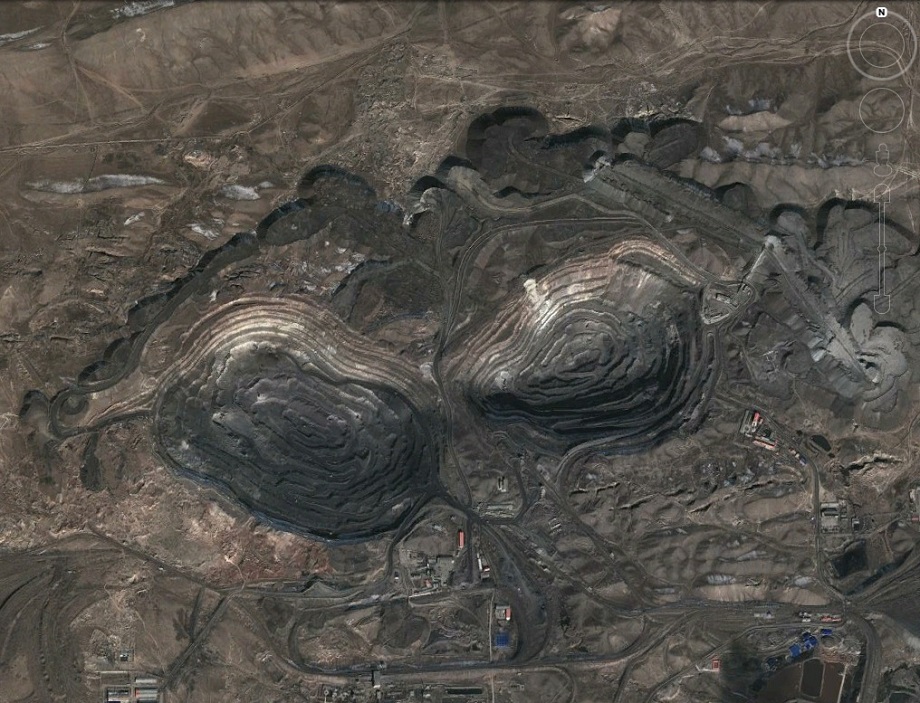ISLAMABAD: The government is gearing up to unveil the country’s vast mineral potential, covering approximately 600,000 square kilometers of surface area, during the two-day Pakistan Minerals Investment Forum 2025 (PMIF25), scheduled for April 8–9.
The forum is positioned as a key platform for international stakeholders, global investors, major corporations, policymakers, diplomats, financial institutions, and industry leaders to evaluate promising investment avenues in Pakistan’s mining industry.
“Pakistan’s mineral sector is a largely untapped resource with the potential to transform the national economy,” stated an official. “By attracting strategic investments, improving infrastructure, and focusing on value addition, mining can evolve into a major pillar of economic growth.”
A central feature of PMIF25 will be the unveiling of the National Minerals Harmonisation Framework 2025.
This initiative by the federal government seeks to boost investor confidence by granting industrial status to the mineral sector, streamlining regulations, offering investor incentives, and encouraging public-private partnerships.
Prime Minister Shehbaz Sharif is set to deliver the keynote policy address on the forum’s opening day. Chief of Army Staff General Asim Munir will also speak at the event.
Other notable speakers include Finance Minister Mohammad Aurangzeb, Deputy Prime Minister and Foreign Minister Ishaq Dar, Energy Minister Ali Pervaiz Malik, and Commerce Minister Jam Kamal Khan.
Representing the United States, Senior Bureau Official for the Bureau of South and Central Asian Affairs, Eric Meyer, will attend the forum to reinforce U.S. engagement in Pakistan’s mineral industry.
A number of international delegates and investment experts are already in Islamabad to participate in the event.
Among the key attendees are Catherine Marsh, Deputy Director General of the Asian Development Bank, and a delegation from China’s Xi’an Geological Survey Center.
Read More: Minerals Investment Forum Pakistan 2025 Starts April 8
Marsh expressed confidence in the forum’s ability to energize the sector, while the Xi’an delegation conveyed best wishes for its success. Delegates from Saudi Arabia are also expected to participate.
The Pakistan Minerals Investment Forum 2025 is being organized by the Oil and Gas Development Company Limited (OGDCL) in collaboration with the Government of Pakistan and key stakeholders.
The event is hosted under the umbrella of the Special Investment Facilitation Council (SIFC) and the Ministry of Energy (Petroleum Division).
Partnerships
Strategic partners include Barrick, Pakistan Petroleum Limited (PPL), Government Holdings (Private) Limited (GHPL), Pakistan Minerals Private Limited (PMPL), Frontier Works Organization (FWO), Mari Energies, and Reko Diq Mining Company (RDMC).
Although Pakistan’s mineral potential is substantial, the sector currently contributes just 3.2% to the GDP, and its exports account for only 0.1% of global trade.
However, growing exploration efforts, foreign investment interest, and improved infrastructure signal promising growth ahead.
With 92 documented mineral types, 52 of which are commercially mined, Pakistan produces about 68.52 million metric tons of minerals annually.
The sector currently operates over 5,000 mines and supports approximately 50,000 small and medium-sized enterprises (SMEs), offering direct employment to nearly 300,000 individuals.
Pakistan is home to a range of significant mineral deposits, including the world’s second-largest salt mine and one of the largest reserves of copper and gold.
Also Read: Pakistan Unveils Minerals Investment Forum 2025
Additionally, substantial coal, bauxite, gypsum, and precious stones—like rubies, emeralds, and topaz—offer substantial export opportunities.
Foreign interest in Pakistan’s mineral reserves continues to grow, driven in large part by projects like Reko Diq in Balochistan’s Chagai district.
Considered one of the world’s largest untapped copper and gold deposits, Reko Diq is poised to become a flagship initiative in Pakistan’s mining sector.
Revived by Canada’s Barrick Gold Corporation, the Reko Diq project is projected to begin production by 2028, backed by an initial investment of $5.5 billion.
Reko Diq and Barrick Gold
According to Barrick CEO Mark Bristow, the mine is expected to generate approximately $74 billion in free cash flow over a 37-year period, based on long-term price forecasts.
Once operational, Reko Diq is anticipated to deliver $2.8 billion in annual export revenues, stimulate job creation, and catalyze local economic development.
A planned expansion phase is set to raise copper output to 400,000 tonnes and gold output to 500,000 ounces annually, with an additional investment of $3.5 billion.
In a strategic development, the federal government has authorized the sale of a 15% stake in the Reko Diq project to Saudi Arabia.
Saudi Arabia’s state-backed Manara Minerals is expected to invest around $1 billion in acquiring this stake, solidifying regional investment ties.
Also Read: Two US Teams Arriving Pakistan – Diplomacy Gains Traction
Officials emphasized the critical role of infrastructure in unlocking the mining sector’s potential.
CPEC
The China-Pakistan Economic Corridor (CPEC) is central to this effort, facilitating improved logistics for mineral transportation and export.
The development of Gwadar Port and Port Qasim will enhance export capabilities, while investments in road and rail networks aim to better link mining areas with industrial zones.
To support the Reko Diq project, logistics will rely heavily on new railway lines established in partnership with Pakistan Railways.
These lines will be used to transport mining equipment and supplies from Karachi to the mine site and move copper and gold concentrate back to Karachi for export.
Beyond Reko Diq, Balochistan holds deposits of over 40 different minerals, including oil, gas, uranium, and coal.
These resources have the potential to power Pakistan’s industrial and energy sectors for generations. Plans are also in motion to establish refining facilities, enabling Pakistan to move beyond raw material exports and add value locally.
